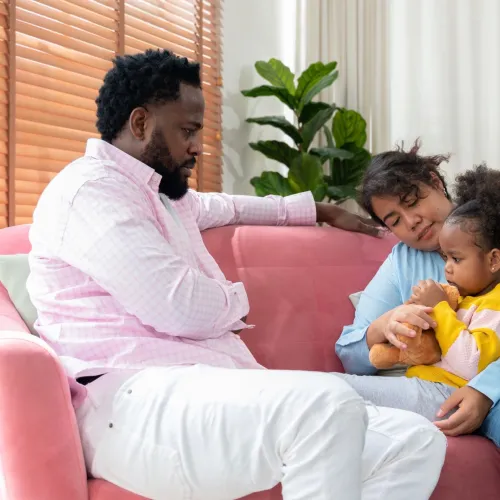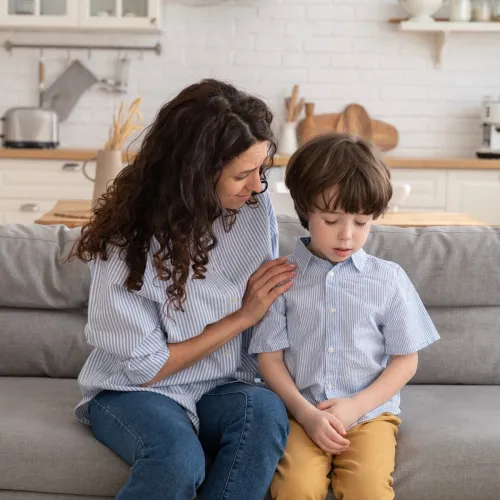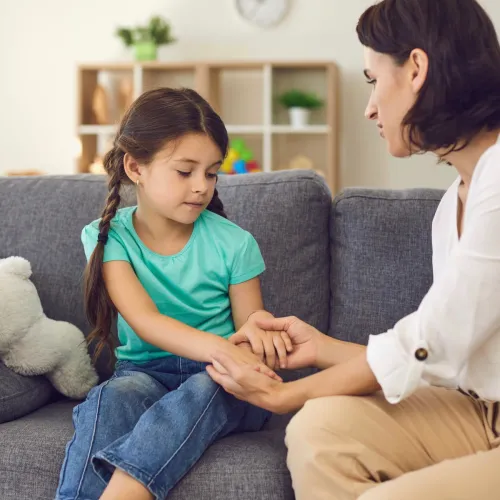Checklist for Keeping Your Child Healthy & Safe

Children look to their parents for their basic needs like shelter, food, clothing, and access to medical care. As a parent, you do so much to maintain your children's well-being. But despite everything you do, the truth is that you can't be there every single moment to monitor their health and safety.
Co-parents, in particular, may find themselves frequently grappling with this matter. When raising children from separate homes, co-parents can work to build a solid plan for maintaining the health and well-being of their kids wherever they may be.
Child Health & Safety Checklist
Whether your child is at home or away, there are measures that you can take to help ensure that they are safe and that their health-related needs are met. Consider this checklist for keeping your child healthy and safe even when you can't be there.
Stay in Touch
Communicate regularly with your co-parent about your child's needs. Stay in touch about your child's routine and any medical-related matters that arise like colds, injuries, or trips to the doctor.
Keep the most current details regarding your child's healthcare available to both you and your co-parent at all times. A co-parenting app with tools for sharing essential family details can make this easy by giving you the right tools to organize various types of information—from insurance numbers to health conditions—and maintain them within one secure place.
Have a Plan for Making Big Decisions
Know your plan for handling medical-related decisions and payments for your child. For co-parents, these details often come up as elements to include in a parenting plan. If you're in the process of drafting your plan, use this article to help consider key topics related to managing your child's health care.
If both you and your co-parent share the responsibility of making medical decisions for your child, find a secure way to share any vital information such as insurance details, prescription information, and incident reports. Keep these details as up to date as possible so that you both have access to the most current medical information available for your child.
Inform Other Caregivers
Inform your child's teachers, coaches, parents of their friends, and other adults in their lives of any allergies or other health conditions your child has. This will help those adults to do their best to keep your child healthy and safe when in their care. If possible, keep this information with your child wherever they go.
If your child or teen has an iPhone, you can use the Health application to keep critical health details with them at all times.
Teach Healthy Habits
Teach your child healthy habits that they can use every day, like how to properly wash their hands and why that's important. As children grow older, it's also important that children begin learning a bit about first-aid. Knowing basic medical tasks like how to clean scrapes and use bandaids can help ensure that your child can take care of their own minor injuries and assist others when needed.
More than just teaching your kids these things, be a model of healthy habits at home. Your children will observe you using these behaviors and will more likely follow suit.
Make Smart Childcare Choices
When seeking childcare, enlist help from trusted individuals. It might be extended family members, close friends, or even a babysitter or nanny that you found online or had recommended to you by a friend. If it's someone you know who will be taking care of your kids, be sure to choose someone you know to be responsible and trustworthy.
Before your child is left in someone else's care, observe this person with your child so that you can get an idea of how well they will do together on their own. If you're hiring someone that you don't know to babysit or are bringing your child to a childcare facility, do some research to get to know the background of the individual or the facility.
Discuss decisions concerning childcare with your co-parent, and always tell them who will be watching your child when either of you cannot be there.
While this checklist includes several tips to help you keep your child healthy and safe, there is always more to consider. Think about your child, their needs, and your family's needs as you take measures to ensure their safety and well-being as they grow.







